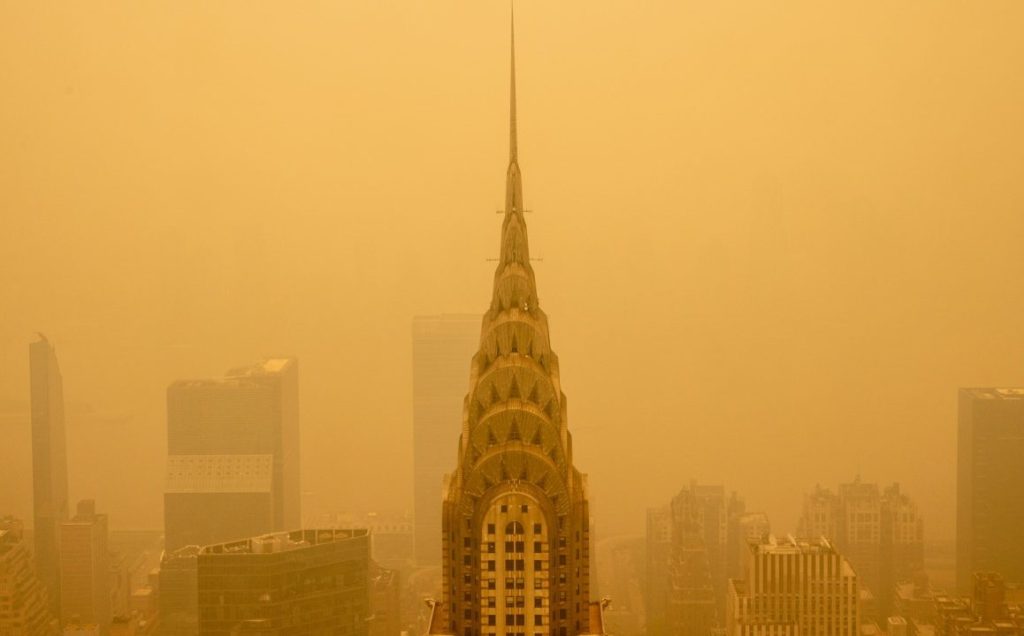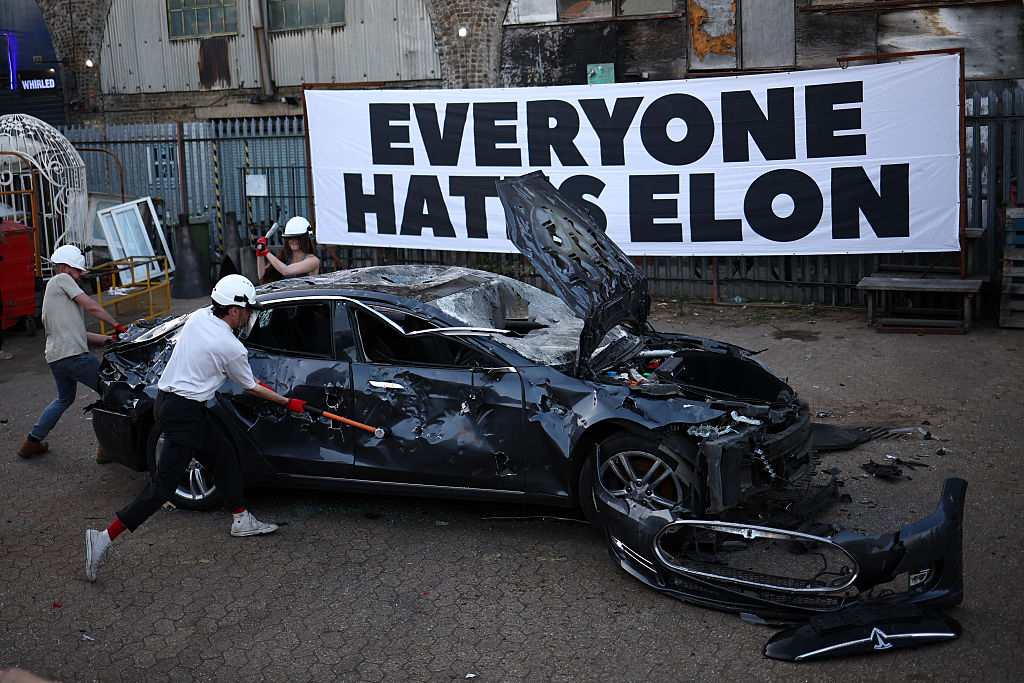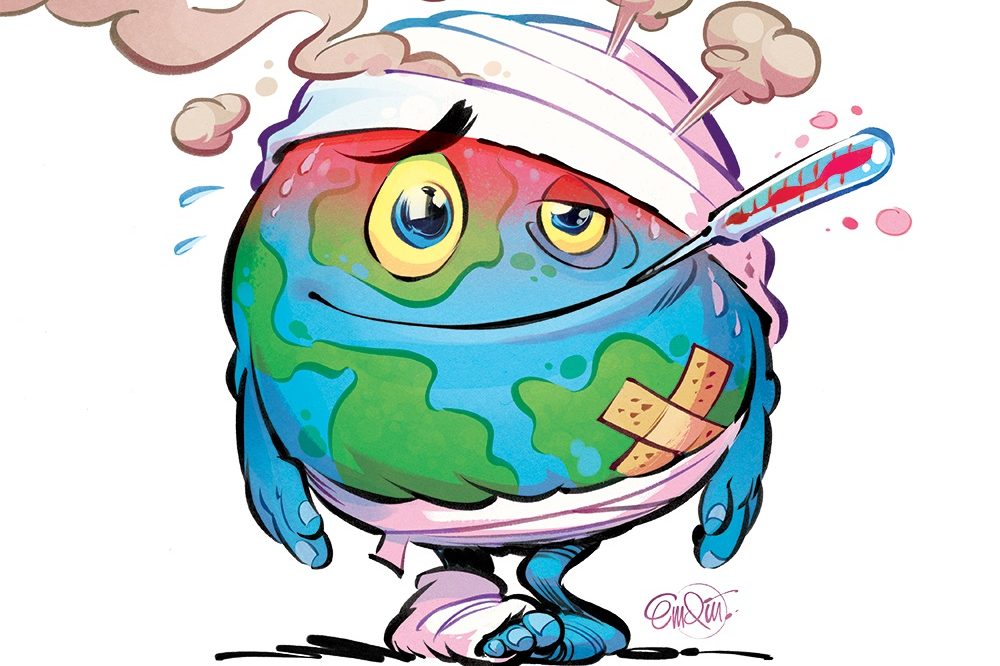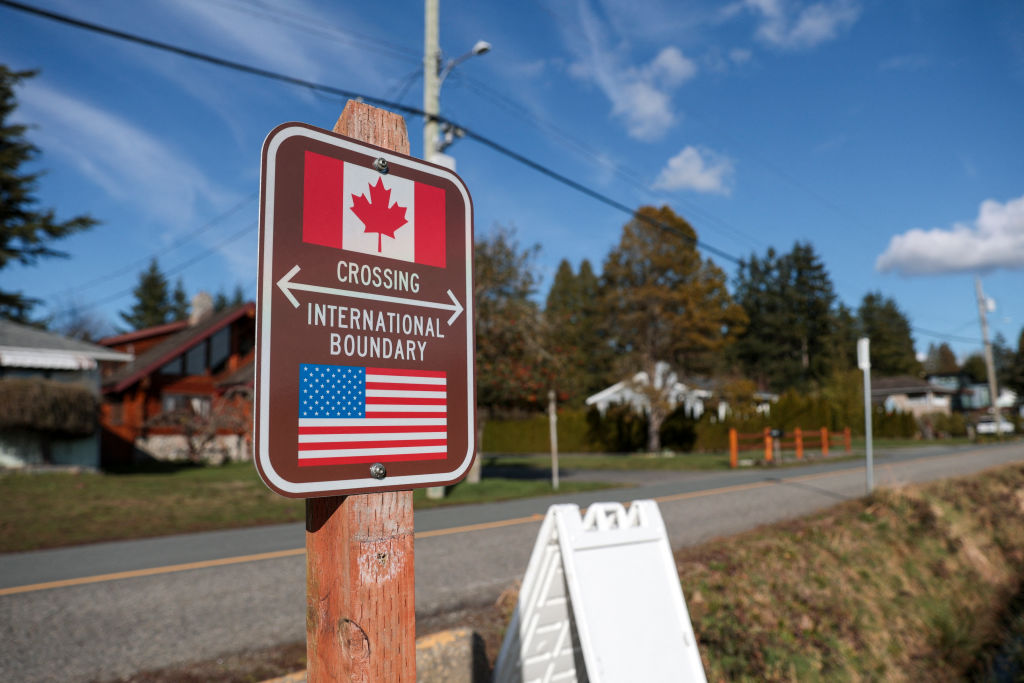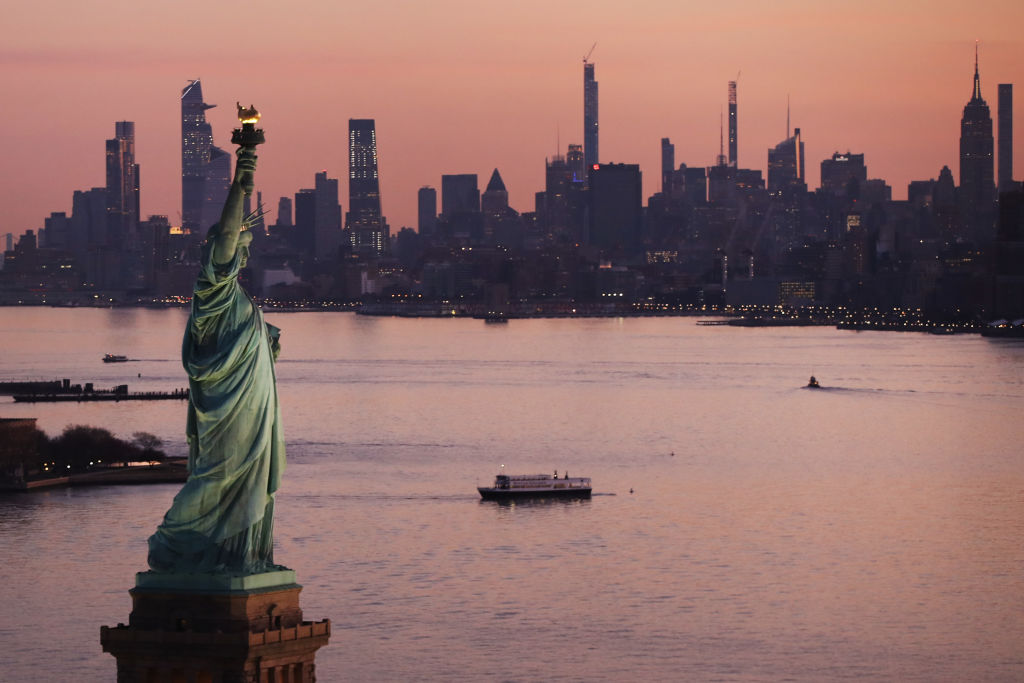I was in New York while the smoke from Canadian wildfires filtered over the city for three days last week, and I took a guilty pleasure in the aesthetic thrill. Midday, the light assumed the roseate hue of sunset. A cloudless sky appeared overcast, and the ghostly sun was so occluded one could look straight at it. Honestly, the atmosphere of anomaly was electrifying. New Yorkers advertised their sense of snow-day exceptionalism by driving even more atrociously than usual. Despite hysterical health warnings to batten ourselves in our homes with closed windows, I played three daily hours of tennis throughout the respiratory emergency — though it was nice to have a ready excuse when I botched another cross-court forehand.
Justin Trudeau must have felt similarly grateful for a ready excuse for those raging wildfires, although we couldn’t call his get-out-of-responsibility-free card creative: climate change, the same all-purpose culprit New York Times columnist Gail Collins lazily blamed for our doomy skies. Anyone care about the truth? The fires and Gotham’s eerie haze were due to wind-fanned lightning strikes in Québec and a rare high/low pressure system across North America called an “omega block” (don’t ask).
Ironically, the real problem may be that Canada hasn’t been lighting enough fires. Government regulations regarding controlled burns have gnarled into a thicket. By the time the paperwork is completed, the narrow window of cool, windless weather ideal for safely incinerating highly flammable dead branches and dry brush has often passed. Fewer controlled burns mean more uncontrolled burns. Add to that: the country has no national firefighting service; provincial wildfire prevention budgets have been cut, and tend to be spent on protecting villages and towns; over the past twenty-five years, Canadian Forest Service staffing levels have plunged from 2,200 to 700.
But never mind those pesky details. Call it “climate change,” and all is forgiven. For politicians, climate has become the catch-all homework-eating dog. If President Erdogan neglected to blame this spring’s earthquake fatalities in Turkey on fossil fuel emissions — rather than the shoddy construction and corruption his administration has fostered — he was missing a trick.
Given the ceaselessness of this mantra, perhaps we’ve finally discovered that scientific holy grail, a “theory of everything” — a single formula that explains why anything happens anywhere (“Because climate change!”). Yet for my entire life I have heard tell of hurricanes, typhoons, cyclones, earthquakes, floods, mudslides, tornadoes, volcanoes, tsunamis, hailstorms, droughts and, yes, wildfires ruining other people’s lives somewhere. We used to call these humbling outbreaks of arbitrary havoc “natural disasters,” but the expression is out of fashion now that every fit the planet throws is all our fault.
So long as the wrath of God has not rained down on me personally or on anyone I care about and the cataclysm has occurred safely far away, I confess that as a news consumer I’ve always been a tiny bit bored by these stories. Oh, sometimes the pics are riveting (especially of the mud slides). I’m abstractly sympathetic, and if given a button to press to make these calamities unhappen, I would press it. Still, there used to be no implicit moral or political content to these impersonal meteorological or geological convulsions, which were simply a terrible shame. After weeks of coverage, I might sheepishly fast-forward through the suffering of strangers, because it didn’t mean anything other than that life was unfair, and I knew that already.
Well, now we’ve loaded the erstwhile “natural disaster” with moral and political content galore. Without fail, news presenters explain every unfortunate weather occurrence as due to anthropogenic “climate change.” A while back, the media were obliged to dredge up some well-funded activist “expert” to justify this claim, but not any more. The attribution of every rained-off picnic to human-induced “climate change” is mindlessly appended to mainstream broadcasts as if the whole industry has the hiccups. Newscasters are safe in their surety that no one will ever demand evidence of a causal link between a drought in the western US and petrol-fueled Land Rovers in Sussex. They’re safe in their surety that no one will ever object that, sorry, Bangladesh has suffered huge floods throughout its history, from which fewer people are dying than ever before. As we do not have an Earth control group — a second identical planet on which all humanity still gets around in donkey carts — they’re safe in their surety that blaming every cataclysm under the sun on fossil-fuel-driven “climate change” is unfalsifiable.
A proposal: let’s bring back the distinction between climate and weather. Climate regards patterns across hundreds if not thousands of years. Check out the graph of global mean temperatures for the last 500,000 years, which resembles an ECG. With a periodicity of approximately 100,000 years, the planet’s mean temperature has steadily dropped to about 41˚F, then swooped up to between 50˚F and 53.6˚F, rising on virtually identical gradients each time (without the help of a single coal-fired power plant). We’re now atop another 20,000-year upward swoop — thankfully, since my forehand would be really crap if I had to chase the ball on a glacier. Industrialized modernity since 1880 takes up so little space on this graph that it’s indiscernible. That is “climate.” Accordingly, I even dismiss climate skeptics’ observation that, according to satellite readings, warming has nearly flatlined for the past twenty years, because in climate terms twenty- years is meaningless.
The media’s knee-jerk “Because climate change!” is numbing in its repetition and suspicious in its constancy. As it smacks of propaganda, on a popular level the incantation backfires. I’d have more faith in the reliability of these incessant attributions if newscasters occasionally tacked on to, say, a report on a deluge, “This event had no connection with climate change. It happened to rain a great deal in one place, but that’s occurred forever. While locals might take councils to task for allowing rampant house-building on a flood plain, otherwise this story has no moral or political content and mostly amounts to bad luck.” But I’m not holding my breath.
This article was originally published in The Spectator’s UK magazine. Subscribe to the World edition here.



